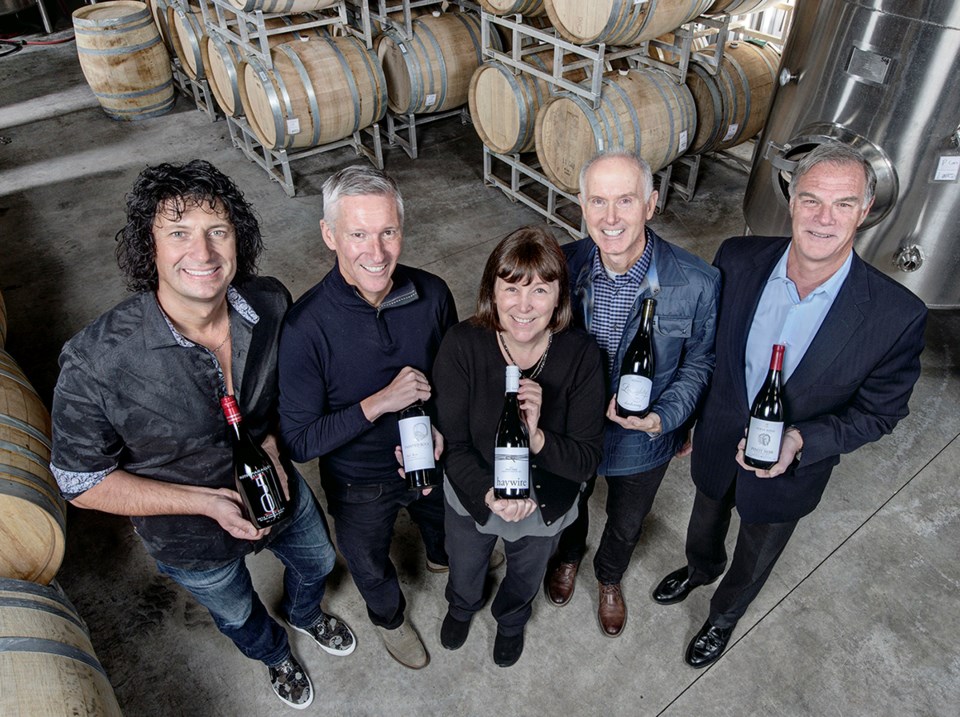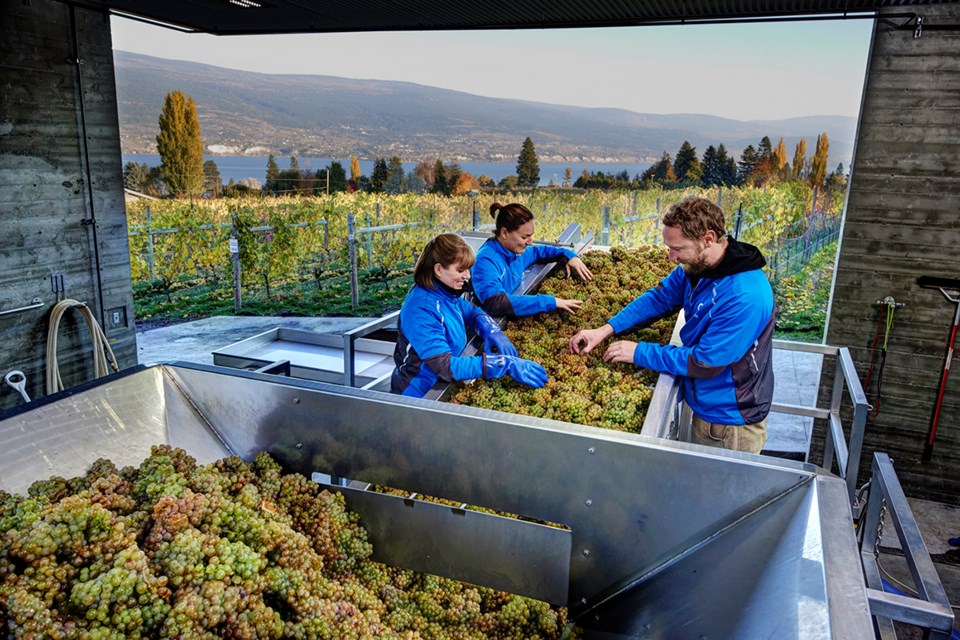A few years ago, if John Clerides wanted to host a wine tasting at his Davie Street store, he was not allowed to actually pour the wine for his customers. B.C. laws said that only a person who made the wine could do that.
Clerides also wasn’t allowed to take a verbal order from a customer. “Hey, John, would you mind ordering me six bottles of that Pinot Noir I like?”
Today, such rules seem arcane.
That’s why the owner of Marquis Wines says he is supporting five B.C. wineries in their Supreme Court of Canada bid to allow the interprovincial sale of wine and alcohol: he wants to keep the evolution of wine culture going.
“This is another little cog in the wheel,” he says. “It would let Canadians know we can make some pretty darn cool wines.”

Christine Coletta (Okanagan Crush Pad), Curtis Krouzel (50th Parallel Estate), Ian MacDonald (Liquidity Wines), Jim D'Andrea (Noble Ridge Vineyard and Winery) and John Skinner (Painted Rock Estate Winery) have been granted intervenor status in R. vs. Comeau. It revolves around police charges against Gerard Comeau, a New Brunswick resident who bought 12 cases of beer and three bottles of liquor in Quebec and then drove home., violating N.B.'s Liquor Control Act.
In early December, the B.C. wine makers will help try to convince the court that trade barriers between provinces are bad business. Speaking on behalf of 100 B.C. wineries, they will argue that being able to send their wines to anywhere in Canada is necessary for their long-term survival.
Although the former Liberal government made it possible for Ontario vintners to ship their wines to B.C., the agreement was not reciprocal. The only provinces that B.C. wine makers can ship to are Manitoba and Nova Scotia.
Clerides likens it to living in Paris and not being able to buy a wine from Bordeaux, Languedoc or Jura.
“Ninety per cent of all Canadian wines are sold in Canada,” Okanagan Crush Pad’s Coletta says. “We need a healthier Canadian market in order to thrive.”
As well as being concerned about NAFTA talks — the Americans say that selling only B.C. wines in B.C. grocery stores is discriminatory — she says the high costs of production in B.C. makes it hard to forge new markets. “We have to work hard to get a foot in the door.”
When she was hired in 1990 to create the province’s VQA (Vintners’ Quality Alliance) program, there were only 16 wineries in B.C. Today there are 250, which have become vital to the tourist economies in many regions including the Okanagan, Vancouver Island, Kamloops and Lilloett.
The vintners have started a GoFundMe campaign to help pay for their legal costs. By October 26, they have raised almost $45,000 towards their $200,000 goal. Coletta says that any monies raised above and beyond their legal costs will be donated to scholarships for people who want to learn the skills to join the wine industry.
“If people can’t give, buy a bottle of B.C. wine,” she says. Social shares are welcome, too. “We need to talk about the value of our industry.”
Clerides will be holding a fundraiser in his store to show his support. He says it’s important for everyone to help ensure the viability of small, family-run businesses represented by the B.C. wine industry.
In the meantime, Coletta says it’s a very busy time for vintners in the Okanagan.
On Thursday, she said “It’s a brilliant day — 17° and the sun is shining. We’re getting the last rays of summer in on the grapes. It’s really looking positive.”



